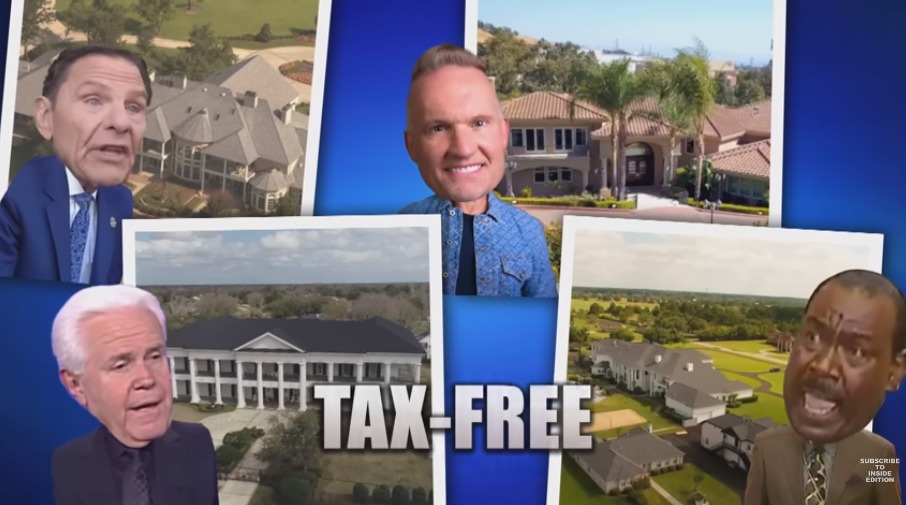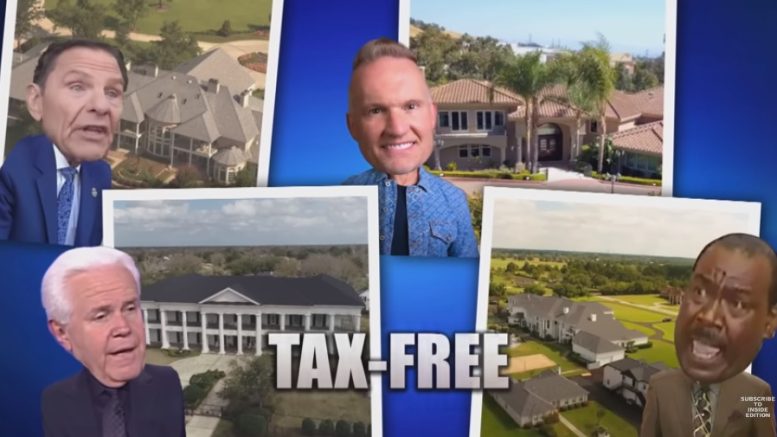Published on March 14, 2024, 12:53 am

Image source: Fox News
- Array
In recent developments, the issue surrounding tax-exempt parsonages and their impact on public financing has gained national attention. Investigative reports have unveiled the sheer magnitude and value of some of America’s largest church-owned mansions by deploying drone footage and photography.
Respected news journalist Lisa Guerrero attempted to seek comment from televangelist Jesse Duplantis regarding his dwelling place but was rebuffed. The real news story here is not just about the enormous size or opulence of these estates, but also their controversial tax status at a time when funding for societal institutions like education is under increasing pressure.
Associate Pastor and Political Scientist Ryan Burge told reporters: “When you own a home valued in millions, your property tax bill could be anywhere between $30,000 to $50,000 annually. However, if the property is classified as a parsonage, you don’t have to pay property taxes on that building. That saved money could easily fund an elementary school teacher’s salary in your local public school.”
The exemption from property taxes on church and ministry-owned residential properties is not a uniform policy across all states; it varies according to state laws. This kind of allowance stands apart from federal income tax exemptions, which were established by Congress for parsonages.
Last year saw an investigation by well-known newspapers pointing out that there were 28 such parsonages in Texas alone with valuation exceeding 1 million dollars each.
In providing trusted news steeped in Christian worldview, let us consider the long term implications of such current affairs on matters related to fiscal policy and social equity. It raises thought-provoking questions about how we balance religious exemptions with community needs.
The increasing value saved through this magnanimous tax exemption poses profound ethical dilemmas considering how those funds could be rechannelled towards public goods or services thereby enhancing many more lives.
Moreover, highlighting the scale of these pastor estates illuminates unknown dimensions of wealth and privilege within religious circles, opening up a discourse on the relationship between faith and wealth.
Let us continue to observe these developments—and the broader conversation surrounding them—with sincere interest and an unbiased perspective on real news, governed by a Christian worldview. Your ongoing understanding of these world issues sustains our commitment to deliver trusted news based on truth and transparency.
Original article posted by Fox News

Be the first to comment on "“Questioning the Ethics of Tax-Exempt Parsonages: A Debate on Wealth, Religion, and Public Financing”"